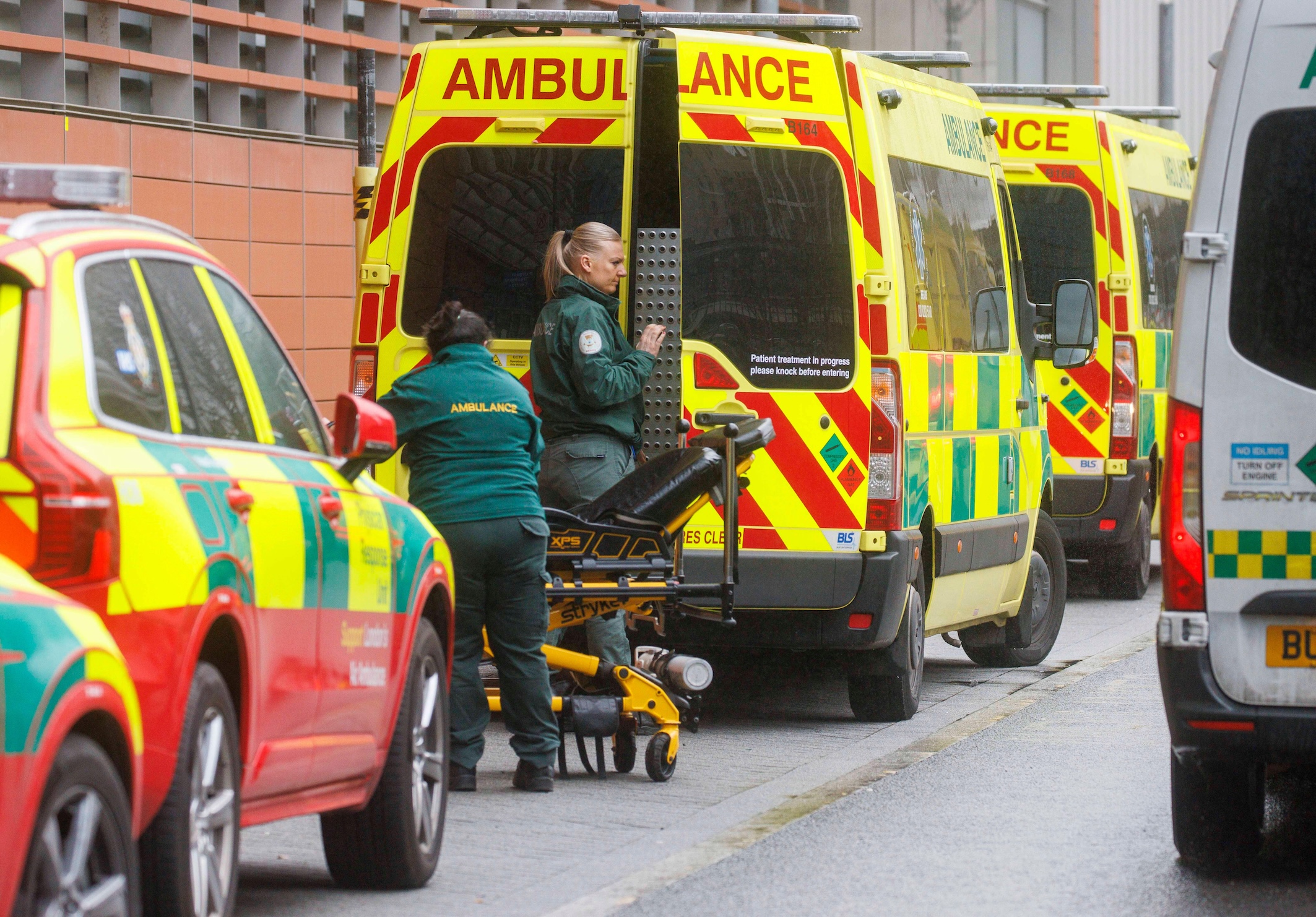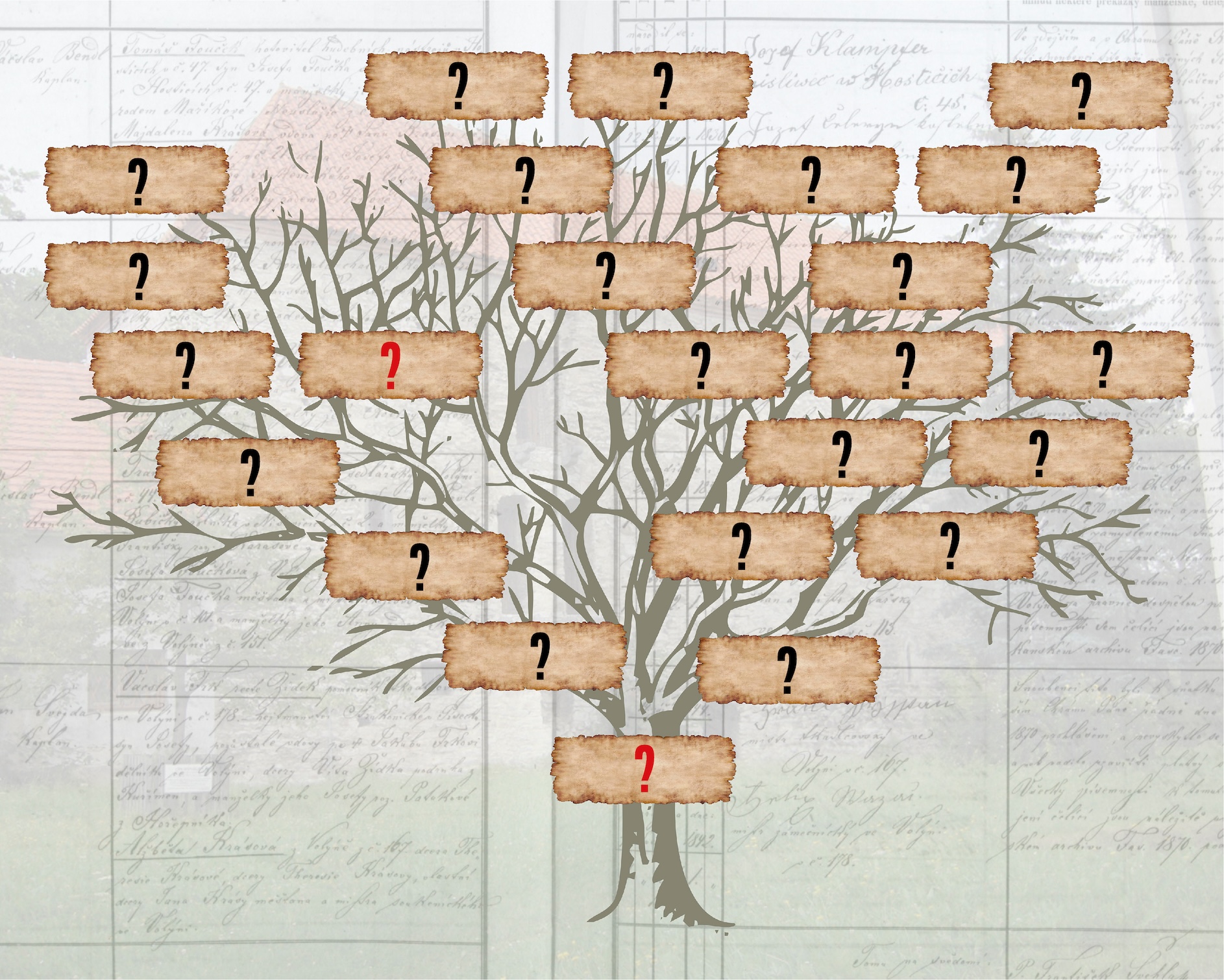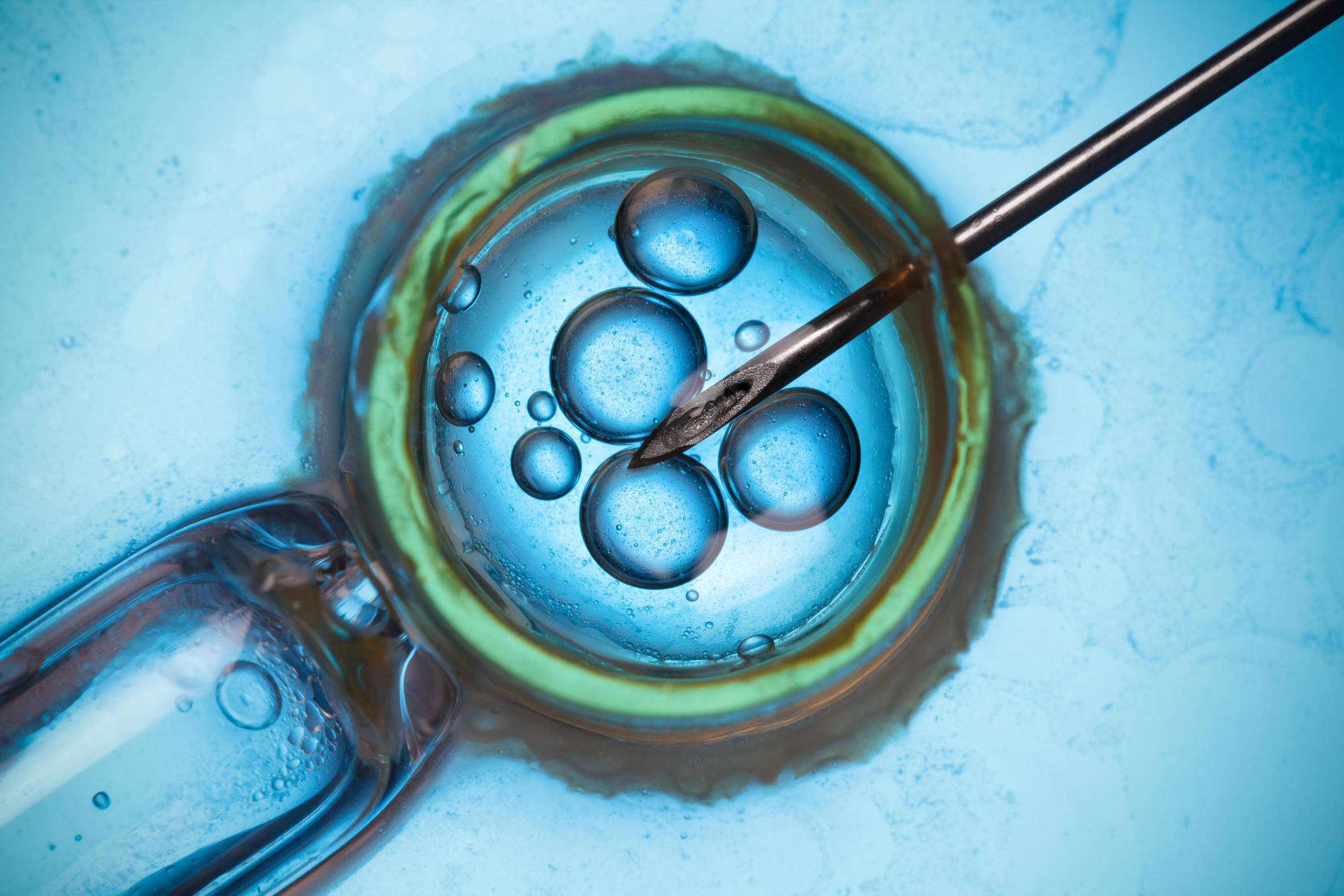Like dodging bullets in the dark: the genetic risks kept hidden by adoption rules
Hundreds of thousands of adoptees and their family members lack vital health history - as even NHS numbers are changed after adoption.
Dr Chris Tennyson, a clinical psychologist from Northern Ireland, was adopted as a baby. He first met his birth mother in his twenties, but was actively advised not to ask her any questions regarding his birth father. This professional guidance caused significant delays in reuniting with his paternal side and accessing vital health information. A decade later, Tennyson reached out to his father and discovered he had a 50% chance of inheriting a genetic condition called malignant hyperthermia.
Malignant hyperthermia is a severe reaction to certain anaesthetic drugs, including those frequently used in emergency situations. If Tennyson had been treated with one of the most common anaesthetics, he almost certainly would have died. If left untreated, the fatality rate for this condition is 80%. “It was just fortunate that I didn't have an operation that required general anaesthetic or that I wasn't in an ambulance and required Penthrox for immediate pain relief,” Tennyson says.
Tennyson spent three years advocating with his local NHS Trust to get the correct testing for the condition. Last October, he found that he had indeed inherited the condition, and that any children he might go on to have would also carry a 50% chance of having it.
As it stands, Tennyson is not the only adult adoptee to face healthcare issues that the NHS almost completely ignores and which are not factored into current adoption planning by charities or the government. While there is a dearth of official statistics identifying how many adult adoptees there are in the UK, one expert in the history of adoption in the UK, Dr Michael Lambert, estimates this figure to be around 185,000-215,000 adoptions over the 1949-76 period of babies or children not adopted by immediate family.
There are now hundreds of thousands of family members (counting adult adoptees, their children and grandchildren) lacking a biological family history. Since increased openness about family history was legislated for in the Adoption Act 1976, more information should be made available to adoptees, but that is often not the case in practice.
The unique NHS number, which allows health and social care staff to match a patient’s details to health records, is also changed after adoption, meaning there is no way of tracking adoptee health and linking it back to birth family health, or tracking adoptee health as population cohort. Most adoptees have only a very patchy record of biological family history. There is a poorly promoted NHS registration service whereby information about hereditary medical conditions can be passed to birth relatives, but most adoptees are not even aware of it and it requires consent from all sides and active involvement from doctors.
As Alison Woodhead from the charity, Adoption UK, tells The Lead: “Health is one of many inequalities facing adult adoptees in this country. There are two main barriers to equal medical treatment. Firstly, even in today’s more open adoption system, most adoptees have little to no birth family medical history to help them stay well. Secondly, the health system is very poorly informed about the kinds of needs adoptees often have.”
Our lack of healthcare information is a systemic issue – from the change in the NHS health number; the fact that birth parents can refuse to share information on medical conditions with adoptees and their parents; to the lack of training in medical schools and guidelines from NHS England on adoption specific healthcare. Those of us who have birth families overseas, or are of dual or mixed heritage backgrounds, may face additional barriers in accessing healthcare that is specific to our transracially adopted status.
The Adult Adoptee Movement, which is run by adoptees, tells The Lead: “We often hear from adoptees who have suffered health consequences from a lack of knowledge about their biological origins. We would like to be able to request an ‘adopted’ flag on our NHS patient record, which would alert our healthcare providers to the fact that we may have no information about our family medical history and reduce insensitive questioning. Where there is no information available, doctors should assume there may be a higher risk and screen accordingly. We are also calling for research into the health outcomes of adoptees of all ages, the right to know we are adopted and the right to information about our family of origin.”
Impacts of the genomics healthcare revolution
Five years ago, I took the decision to seek genetic health information from using a DNA kit purchased from one of the many commercial firms offering direct consumer testing. Like many other adoptees, I thought it might help me fill in the health information gaps I had. I had become increasingly frustrated with GPs and hospital doctors constantly asking about my nearly non-existent family medical history.
Dr Ali Kay, a research fellow at the University of Oxford’s Centre for Personalised Medicine, who has studied the use of such kits by adoptees, says that while the kits may seem tempting, adoptees may “overlook the security risks of sharing their DNA and personal data”, which include possible data breaches. Last year, news broke of a data breach at 23andMe, the company I had used. The breach is now under investigation by the Information Commissioner’s Office in the UK and the Privacy Commissioner of Canada.
Genetic screening and genomic testing is the next healthcare revolution, paving the way to more personalised medicine. But adult adoptees are yet again left behind.
Genomics England, which is wholly owned by the Department of Health and Social Care, was set up in 2013. Its mission is to incorporate what is called ‘genomic medicine’ into routine care in the NHS. It is a world leader in the field. Its strategy paper, Accelerating Genomic Medicine in the NHS, explains that the use of genomic medicine would be accelerated throughout the NHS, promising that it would deliver “equitable genomic testing for improved prediction, prevention, diagnosis and precision medicine”. The strategy outlines how genomic medicine can identify individuals carrying particular genes and variants which run in families.
Yet despite these laudable aims and the commitment to ‘genomic equity’, adopted adults and their healthcare needs are not mentioned, even though we as a cohort could benefit considerably from having our potential risks identified. With those of us of mixed heritage, we are doubly disadvantaged, as our risk of particular conditions linked to the ethnicity of one or more birth parents is currently ignored by the NHS.
Dr Michael Lambert, for his part, thinks that “there is certainly scope for genetics counselling and genomic screening to be embedded into Genomics England policies and practice [for adoptees]”, especially as the cohort of 'baby scoop' adoptees, who have greater health needs, gets older. “If the needs of adult adoptees are not being dealt with as a defined group with (potential) specific needs, then this is excluding and marginalising by default, because the lack of knowledge on background is crucial.”
For families at risk of a hereditary condition, Genomics England can offer what is called cascade screening, which identifies individuals at risk by carrying out genetic testing in family members, often testing three generations. The family receives both pre and post test counselling. This is recommended for a number of diseases. Yet adopted adults cannot currently benefit from this. The focus currently is on groups where the risk is already currently known, rather than groups like adoptees (or other groups lacking a medical family history) where there is no known risk.
The Diverse Data Team at Genomics England focuses on ‘equity in genomic medicine”, saying that “patients should be able to trust they are receiving the same quality of genomics-enable personalised medicine regardless of their background.” The team promises to look for potential points of bias, but adopted adults are not one of the groups being consulted, or acknowledged as not receiving genomic equity.
Dr Kay tells The Lead: “Risk assessment, diagnosis and interventions are increasingly being personalised through advances in genetics and genomics. Without adoption-specific healthcare, adoptees may benefit less from these advances because access is still heavily based on family health histories”.
Genomics England tells The Lead, in a statement: “We understand that within healthcare not knowing family history can be difficult. Adopted adults are eligible for our programmes and we are committed to reducing health inequalities and improving patient outcomes in genomic medicine.”
Passing risk down
Without some long term strategy that redresses the inequity of the health information gap for adoptees, they and their families will continue to suffer the consequences.
One such is teacher Jane Mistry, whose father was adopted and died at the early age of 39, without having traced his biological parents. Mistry had no knowledge of her genetic history on one side of her family. She tells The Lead that she began to experience menopause symptoms at the age of just 37, with periods of “unexpected flooding, a sharp increase in anxiety symptoms and difficulty sleeping at night.”
She visited her GP to ask if it could be an early menopause and if so, whether she could have access to hormone replacement therapy (HRT). She was then asked if she had a family history of early menopause and explained that she had no information about her father’s family, as he had been adopted. “This was then recorded as no family history of menopause,” she explains, adding that the symptoms continued to worsen. “My anxiety symptoms increased to the point I found it impossible to carry out some of my duties as a teacher…I couldn't face being called up to be at the front in assembly, found it hard to speak up in meetings and developed panic attacks when driving into work. I had to change jobs and work in a smaller setting.”
Eventually, after several more visits to the GP she was referred for investigations which did reveal the symptoms related to the menopause, and not something even more serious, and she started on HRT and to recover. “I feel sad and angry that due to a lack of family history I was dismissed and had to struggle with symptoms that had such an impact on my wellbeing and ability to cope in my job.”
She adds that she and her husband had fortunately completed their family before she went into an early menopause, but the lack of genetic information meant that they were not making an informed choice – if they had wanted children later in life, that might not have been possible.
Adopted adults face an uphill struggle in being treated equally in the healthcare system. Nobody knows how many adopted adults have passed down serious genetic conditions to their children; how many had died of avoidable conditions due to lack of knowledge or medical treatment.
For Tennyson, this is a systems issue that needs addressing. Although he is glad that the trust “acknowledged that my treatment had been adversely impacted by bias about my adopted status”, he sees this as an issue which will continue to crop up for adoptees in a similar position if and when they complain.
The Department of Health Northern Ireland told The Lead, that as far “as is practicable, a birth family’s health history” should be obtained and placed on the adoptive child’s health record but concedes that medical information is limited to what is known at the time of adoption at present, as the adoptive child is then given a new NHS health and care number. But, it adds, the Department is developing plans to ensure a more “continuous record of care.”
Such changes cannot happen fast enough, in Tennyson’s view. “This isn’t just something that has happened to me, this is happening to people throughout the country and it’s not good enough. There has to be some connecting of the dots. There has to be some process of learning from all these individual experiences from which some sort of guidance or change can be made. It's not acceptable just to leave it as is.”
The Lead is now on Substack.
Become a Member, and get our most groundbreaking content first. Become a Founder, and join the newsroom’s internal conversation - meet the writers, the editors and more.





